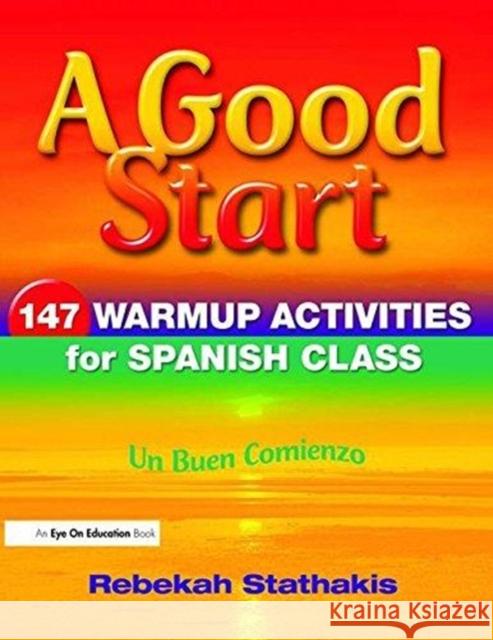A Good Start: 147 Warm-Up Activities for Spanish Class » książka
A Good Start: 147 Warm-Up Activities for Spanish Class
ISBN-13: 9781138475694 / Angielski / Twarda / 2017 / 206 str.
A Good Start: 147 Warm-Up Activities for Spanish Class
ISBN-13: 9781138475694 / Angielski / Twarda / 2017 / 206 str.
(netto: 536,42 VAT: 5%)
Najniższa cena z 30 dni: 528,93
ok. 16-18 dni roboczych.
Darmowa dostawa!
Teachers have an enormous impact on how their students approach learning situations. Motivation to Learn in the Secondary School is a practical resource that will help you to combat student apathy and create a positive learning environment that will encourage all your students to learn. Aimed at senior leaders in school, this resource will help you to identify the different motivational factors in your students and will illustrate ways to maximise successful learning opportunities in the classroom. Motivation to Learn in the Secondary School looks at what is meant by motivation as well as the key theories relating to it. With additional activities, Theory into Practice (TiP) sessions, handouts, information pages and a PowerPoint training session, Motivation to Learn in the Secondary School is also a comprehensive training tool that can be used by all staff. This training tool will help to raise awareness of the key theories and concepts about motivation to improve student learning. Motivation to Learn in the Secondary School is designed to be read in sequence. The first three chapters will provide you with an understanding of what is meant by motivation and includes definitions as well as related theories. Each chapter contains Theory into Practice (TiP) sessions that are designed to convert motivational theory into practice. These sessions will aid staff understanding and encourage student motivation through a series of activities and practices. Motivation to Learn in the Secondary School also includes a series of additional activities with handouts and information pages. These are designed to be used by individual or small groups of staff for personal reflection and policy development and include: *case studies and autobiographies *how leaders and managers can motivate their staff *how staff can use the accelerated learning cycle to motivate students *applications of Kolb's Learning Styles model and experiential learning theory











